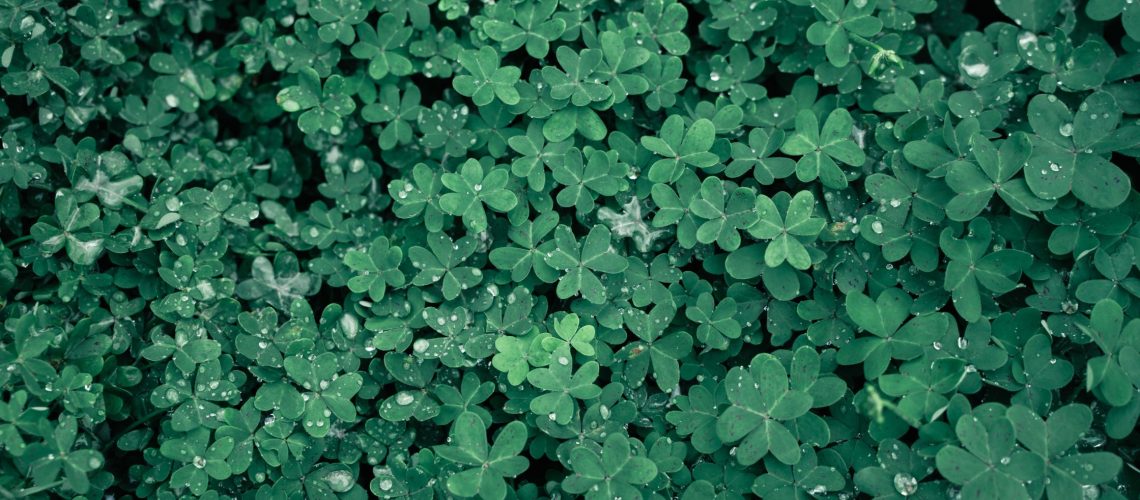If you’ve considered replacing a regular lawn with clover, imagine a neighborhood yard that greens up with less mowing and fewer inputs, yet needs thoughtful spacing and timing to thrive. Consider soil health, foot traffic, replanting needs, pollinator benefits, and staining concerns. Before you commit, you should plan soil prep, climate fit, and maintenance expectations to avoid surprises down the line. The key moves you make now will shape outcomes later.
Benefits of a Clover Lawn
A clover lawn offers several low-maintenance benefits that can simplify yard care. Mow less often, save time and fuel, and maintain a tidy, green look.
Its pest resistance helps cut chemical use, supporting a healthier, more resilient landscape. You’ll notice improved soil health as clover fixes nitrogen, boosting fertility for surrounding plants.
The aesthetic appeal of its dense, uniform cover creates a soft, inviting backdrop and year-round color. Pollinator support grows as blooms attract bees and butterflies, enhancing garden productivity.
Environmental impact is reduced thanks to drought tolerance and lower fertilizer needs, aligning with eco-conscious lawn goals.
Types of Clover Best for Lawns
Crimson clover, strawberry clover, red clover, white clover, and microclover stand out as top choices for lawn use, each bringing unique benefits.
When you compare clover varieties, consider growth rates, establishment speed, and seasonal performance.
Clover lawn aesthetics vary: white and microclover offer subtle blooms and dense cover, while crimson and red provide more color and height.
Pest resistance differs by type, with white and microclover often outperforming in weed suppression.
For lawn applications, select based on traffic tolerance, maintenance needs, and soil goals.
Mixes can optimize drought resilience, soil health, and visual appeal across various climates.
Planting and Establishment Tips
To get clover established strongly, start with solid soil prep and a clear plan for either a pure clover bed or a grass-clover mix.
Select a suitable seed variety and clean out any debris. Test the soil to ensure a pH of 6.0–7.0, and make adjustments if necessary.
Optimal timing is early spring or fall in mild regions, when soils are moist but not saturated. Use simple planting techniques: broadcast seed lightly and press or roll.
Maintain consistent moisture throughout germination, keeping the surface damp until sprouts establish. Monitor emergence, then ease irrigation as roots form.
Maintenance, Water, and Mowing Needs
Clover lawns require less water and fewer mowing sessions than traditional grass lawns, making upkeep simpler and more sustainable.
Clover stays shorter and grows evenly, so you’ll need to mow less often.
For water conservation, rely on the plant’s drought tolerance, limiting irrigation to dry spells and early morning sessions to reduce evaporation.
Maintenance requirements are straightforward: occasional reseeding in thin patches, light aeration if thatch builds, and weed control around edges.
Clover resilience supports steady growth, while seasonal care includes extra attention after extreme heat or frost.
Potential Drawbacks and Limitations
Clover has its benefits, but it’s not suitable for every lawn. Consider the drawbacks before making a switch.
Foot traffic can wear clover thin, especially in busy play areas, so you might experience patchiness or bald spots.
Replanting frequency is necessary, as clover is a short-lived perennial that often needs reseeding every few years.
Staining issues may arise from pigment transfer when clothes rub or soil gets disturbed.
Some lawns attract pests, which can complicate maintenance.
Soil competition with established turf can limit the root growth of neighboring grasses.
Weigh these factors against the benefits to decide if clover suits you.
Choosing the Right Clover for Your Climate and Soil
Choosing the right clover for your climate and soil starts with a quick check of your hardiness zone and soil pH.
Compare clover varieties to fit your conditions and apply climate-adaptation strategies appropriate for your region.
Understand the importance of soil pH, as it affects nutrient uptake and root health, when choosing a cultivar.
Regional planting considerations matter: some varieties thrive in coastal, inland, or high-altitude sites, while others tolerate shade or drought.
Seasonal growth patterns help you time establishing and maintenance, ensuring a resilient lawn with steady germination, establishment, and flowering cycles throughout the year.
Clover, Clarity, and Confidence with CWG Landscape
Choosing clover as part of your lawn aesthetic can be a smart, durable move, but it works best with a plan. CWG Landscape brings full-service expertise to both residential and commercial landscape maintenance and installation, turning your green ambitions into a reliable, low-stress reality. From initial design and site assessment to ongoing care and seasonal updates, CWG’s team handles every detail—mowing, fertilization, irrigation, weed control, and hardscape integration—so you can enjoy a lush, resilient landscape without the guesswork.
Why CWG makes a difference:
Full-service approach: From concept to maintenance, CWG coordinates every element of your outdoor space to ensure consistency, quality, and efficiency.
Residential and commercial expertise: Whether you’re nurturing a home oasis or creating inviting, durable landscapes for business clients, CWG tailors solutions to your needs and budget.
Proven maintenance and installation: Regular upkeep, smart plant selections, and thoughtful installation keep your lawn vibrant and functional year-round.
Client-focused partnership: CWG prioritizes clear communication, reliable service, and outcomes that align with your goals—delivering value you can see and feel.
Embrace clover with confidence, knowing CWG Landscape is by your side to design, install, and maintain a landscape that’s greener, more sustainable, and easier to manage—while you enjoy the beauty, not the burden.

